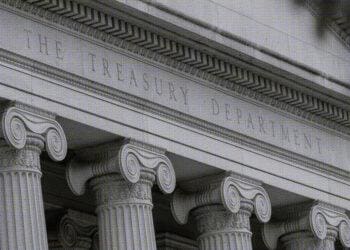FinCEN has proposed lowering the “Recordkeeping Rule” and “Travel Rule” thresholds, and although the changes would benefit law enforcement, they could also result in increased cost to regulated entities. BDO’s Chuck Pine discusses the potential compliance burden the proposed changes could pose.
On October 27, 2020, the U.S. Department of the Treasury Financial Crimes Enforcement Network (FinCEN) and the Board of Governors of the Federal Reserve System (Board) (collectively known as the Agencies) issued a joint advanced notice of proposed rulemaking (ANPRM) to lower the thresholds under the Recordkeeping Rule and the Travel Rule to $250 for fund transfers and transmittals of funds that begin or end outside the United States. Written comments to the ANPRM were due on or before November 27, 2020.
While these proposed changes are intended to help law enforcement address financial crimes, they could also potentially create a compliance burden on financial institutions that process international payments. However, financial institutions that make proactive preparations for the changes ahead can help minimize that burden and ensure the successful implementation of new processes and procedures.
The Recordkeeping Rule and Travel Rule
On January 3, 1995, the Agencies jointly issued a recordkeeping rule (the “Recordkeeping Rule”) that requires banks and nonbank financial institutions (NBFIs) to collect and retain information related to funds transfers and transmittals of funds in amounts of $3,000 or more, codified at 31 CFR 1020.410(a) and 1010.410(e). As stated by the Agencies, the Recordkeeping Rule is intended to help law enforcement and regulatory authorities detect, investigate and prosecute money laundering and other financial crimes by preserving an information trail about persons sending and receiving funds through the funds transfer system.
At the same time, FinCEN issued a separate rule — the “Travel Rule” — that requires banks and NBFIs to transmit information on certain funds transfers and transmittals of funds to other banks or NBFIs participating in the transfer or transmittal, codified at 31 CFR 1010.410(f). The Travel Rule and the Recordkeeping Rule complement each other: The Recordkeeping Rule requires banks to collect and retain the information that, under the Travel Rule, must be included with transmittal orders.
The information required to be collected and retained includes, at a minimum:
- Name and address of the originator/transmitter,
- Amount of the payment,
- Date of the payment,
- Any payment instructions received from the originator and
- Identity of the beneficiary’s financial institution.
Moreover, if received, the originating institution must retain and transmit:
- The beneficiary’s name and address,
- The beneficiary’s account number and
- Any other information identifying the beneficiary.
Proposed Changes
The proposed modification would reduce the threshold from $3,000 to $250 for funds transfers and transmittals of funds that begin or end outside the United States. A funds transfer or transmittal of funds would be considered to begin or end outside the United States if the bank or NBFI knows or has reason to know that the originator, originator’s financial institution, beneficiary or beneficiary’s financial institution is located in, is ordinarily resident in or is organized under the laws of a jurisdiction other than the United States. Of note, the rule would remain unchanged for domestic funds transfers.
The Agencies are also proposing to expand the definition of “money” to include convertible virtual currency (CVC). Currently, the Recordkeeping Rule does not define the term “money,” but references the definition set forth in the Uniform Commercial Code (UCC). The UCC defines “money” as “a medium of exchange currently authorized or adopted by a domestic or foreign government” [see U.C.C. 1-201(b)(24) (2001)]. Some have argued that because CVCs are not authorized or adopted by any government, they cannot be defined as “money.”
Rationale for Proposed Changes
Threshold Lowering for Cross-Border Transfers
In proposing these modifications, the Agencies considered the usefulness of transaction information associated with smaller-value cross-border transfers and transmittals of funds in criminal, tax or regulatory investigations or proceedings.
Specifically, the Agencies reviewed nearly 2,000 Suspicious Activity Reports (SARs) filed by money transmitters, which indicate that a substantial volume of potentially illicit funds transfers and transmittals of funds occur below the $3,000 threshold. The Agencies also studied recent prosecutions showing that individuals were sending and receiving funds to finance terrorist activity in amounts below (and in some cases, well below) the current $3,000 recordkeeping threshold.
FinCEN found that 99 percent of the underlying transactions reported in the reviewed SARs began or ended outside of the United States. As a result of these observations, FinCEN and the Board suggest lowering the cross-border threshold to $250. Because the underlying reported transactions in the reviewed SARs were predominantly not domestic in nature, FinCEN recommends maintaining the threshold for domestic transactions at $3,000.
Moreover, the proposed lowered threshold for the Recordkeeping and Travel Rules has garnered support from law enforcement, including the Money Laundering and Asset Recovery Section (MLARS) of the Criminal Division of the Department of Justice (DOJ).
Finally, the Agencies noted that the Financial Action Task Force (FATF) has indicated that records of smaller-value transactions are valuable to law enforcement, particularly with respect to terrorist financing investigations. The European Union and many jurisdictions around the world have adopted a 1,000 USD/EUR de minimis cross-border threshold specified in the FATF Recommendations.
Definition of “Money” to Include Virtual Currencies
As the Agencies note, since the issuance of the Recordkeeping Rule and the Travel Rule, a number of CVCs (such as Bitcoin and Ethereum) have been created, and public use of CVCs has grown significantly in recent years. The expanded public use also includes bad actors, who have used CVCs for purposes of international terrorist financing, weapons proliferation, sanctions evasion, money laundering, in addition to predicated crimes like narcotics trafficking. Explicitly including CVCs within the definition of “money” eliminates any ambiguity as to whether virtual currencies come within the purview of the Recordkeeping and Travel Rules.
The inclusion of CVCs within the definition of “money” aligns with recommendations from FATF, which has advised to consider virtual assets as “property” or “funds,” and consequently, should apply relevant FATF anti-money laundering/counter-terrorist-financing measures to virtual assets.
In furtherance of the proposed changes, the Agencies also note that “[i]n addition to CVCs, foreign governments — including Iran, Venezuela and Russia — have created or expressed interest in creating digital currencies that could be used to engage in sanctions evasion” (ANPRM).
Potential Burden on Financial Institutions and Other Entities
The Agencies believe that the effect of lowering the $3,000 threshold on banks and NBFIs is likely to be low, stating that some banks are already collecting information on at least a portion of transactions taking place under the current threshold for purposes of reporting suspicious transactions to FinCEN.
Notwithstanding the Agency’s statements, the proposed rule change will likely increase the cost of compliance for banks, NBFIs and other regulated entities. For one, as noted by FinCEN, banks and NBFIs are collecting information on some transactions (those over $3,000), but not all. The lowering of the thresholds will necessarily mandate, at a minimum, the updating of procedures and processes already in place, additional training and increased recordkeeping costs.
Moreover, unlike banks and NBFIs, most virtual currency businesses are not equipped with the tools to collect and retain information required by the Recordkeeping and Travel Rules. Some argue that the burden on these types of businesses is higher, because the information required under the Rules is far more information that is generally required to transfer an amount of virtual currency between two parties. Moreover, banks and NBFIs already have required customer information programs (CIP) in place to identify and verify the identity of their customers, while virtual currency businesses do not.
In light of these proposed new obligations, it is important for businesses to get ahead and prepare for the coming changes and to avoid future compliance challenges by considering:
- Implementing processes and procedures to capture funds transfers and transmittals of funds at $250 or more that begin or end outside the United States, keeping in mind to include specifics as to how to determine whether a transaction is, in fact, cross-border in nature.
- In light of new processes and procedures, ensuring that employees tasked with capturing and retaining the information required under the Rules receive updated training on the proposed changes.
- Ensuring sufficient funding for the compliance department and BSA Officer.
- Installing robust internal controls and quality review processes in line with the new regulatory guidance and best practices.
With these enhancement opportunities, banks and other entities can stay ahead of the curve to ensure successful implementation of processes and procedures to capture and retain information required under the amended Recordkeeping and Travel Rules.



 Charles (Chuck) Pine is a Partner in
Charles (Chuck) Pine is a Partner in 






